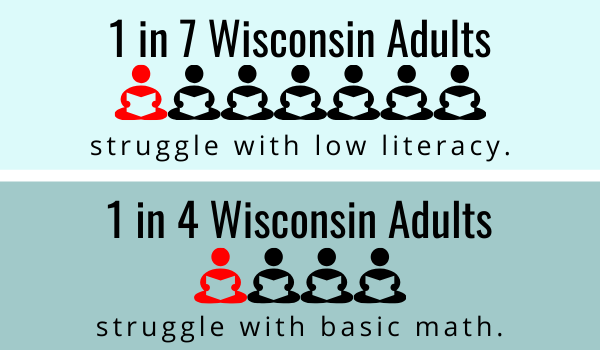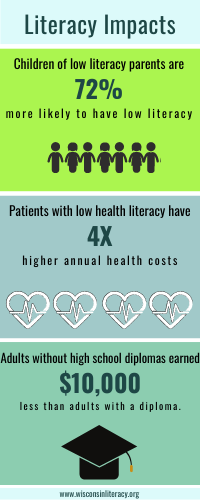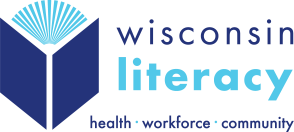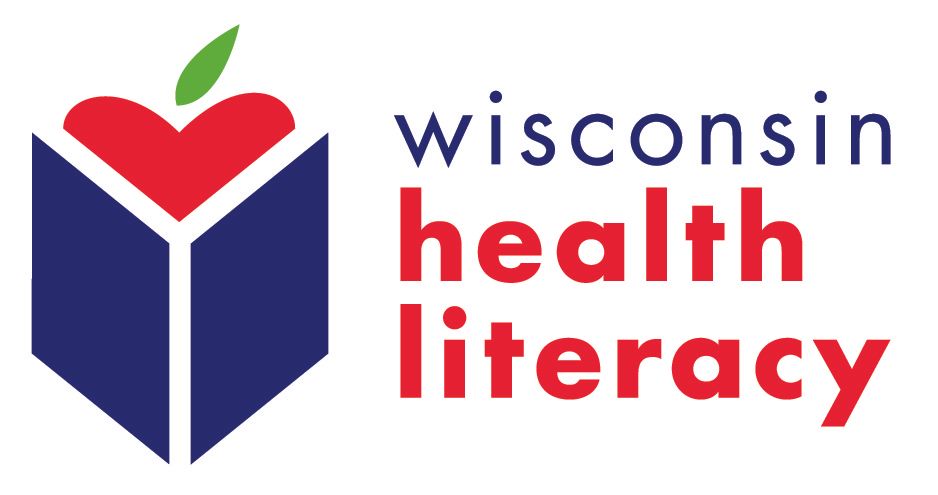
One in seven Wisconsin adults struggle with low literacy. They struggle to understand short, simple sentences and perform simple tasks. Adults with below basic literacy would have trouble filling out forms and following printed instructions.
Numeracy, or the ability to understand and calculate numbers, is even worse. Almost one in four Wisconsin adults can perform, at most, basic adding, subtracting, dividing, and multiplying, but do not understand percentages or multiple step math problems.
Whether literacy, numeracy, or obtaining a high school equivalency, 1.5 million people in Wisconsin need help building literacy skills.
These latest scores come from the National Center for Education Statistics (NCES)’s recently released U.S. Program for International Assessment of Adult Competencies (PIAAC) Skills Map. This interactive map estimates literacy and numeracy skill levels in all U.S. states and counties.
Research shows that literacy skills affect household incomes and health. In Milwaukee and Clark Counties where 25% and 22% of adults (respectively) are at or below the lowest literacy level, a higher percentage of residents are also below the poverty line (21% and 13%) and rate their overall health as “fair” or “poor” (15% and 13%). These statistics come from the Literacy Gap Map from the Barbara Bush Foundation for Family Literacy.
Wisconsin has one of the widest achievement gaps between African American and white students on fourth- and eighth-grade math and reading tests in the nation (2022 National Assessment of Educational Progress). The gap in graduation rates is the largest in the nation with white student rates at 94% and African-American students at 71% (The U.S. Department of Education).

Literacy makes a huge impact.
In the United States:
- a child of parents with low literacy is 72% more likely to have low literacy.
- a patient with low health literacy has 4 times the medical costs annually.
- an adult without a high school equivalency makes $10,000 less a year than an adult with one.
Today’s jobs require literacy and numeracy skills beyond the basic levels, with a growing demand for technical skills. PIACC data reveals an additional 34% of adults in Wisconsin are challenged to perform complex, written tasks. According to the 2020 US Census, 345,000 Wisconsin adults do not have their high school diploma or equivalent.
Many adults across the state are in need of advanced skills training and high school equivalencies
“There will be an increased need for literacy services and job readiness skills,” said Michele Erikson, Executive Director of Wisconsin Literacy, Inc. “If we do nothing to improve the literacy, numeracy, and digital problem-solving skills of Wisconsin’s workforce, we will see a decline in the earning power of its residents and the growth of its economy. We need to look at raising literacy levels.”
How do we solve the problem?
People need adult and family education in their communities to get ahead.
Wisconsin Literacy members and their volunteer tutors:
- Work with immigrants or refugees to teach English.
- Help adults prepare for GED, HSED, and citizenship tests
- Teach basic reading or writing skills so learners can get a better job or get into a career training program.
- Teach computer skills
- Work on job readiness and workplace skills
Volunteers keep literacy programs going. Volunteer tutor hours provide almost 4 million dollars a year in educational services for Wisconsin and one of the most cost-effective ways to increase education and job readiness skills. Find a program near you and begin volunteering today!
No time to volunteer? Consider a donation to Wisconsin Literacy.

